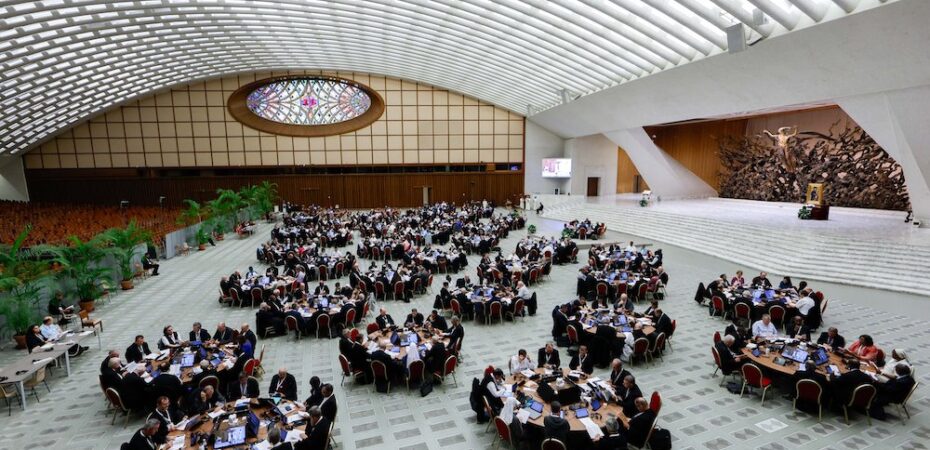A Synod Without Deacons
Synod overlooks diaconal delegate participants
Deacon Dominic Cerrato Comments Off on A Synod Without Deacons
The Vatican’s Synod on Synodality, aligned with Pope Francis’ vision of a “listening Church,” seeks to discern the Church’s direction in creating a culture of dialogue and participation among its global membership. The synod is engaging the entire Church in a collective process of listening, discernment and collaboration over two years, beginning with local consultations at the diocesan level. The local dialogues aim to gather reflections on the experiences of the faithful and the future direction of the Church, which are then brought forward to national or regional assemblies.
Central to these discussions is the theme of synodality, with a focus on confronting contemporary challenges and identifying pastoral strategies, while maintaining the integrity of core doctrines. As the synodal process progressed to its latest gathering in Rome, the issue of women in the diaconate has become a point of recurring discussion. The Amazon Synod in 2019 highlighted this topic, recognizing the vital leadership roles women hold within the Church, particularly in the Amazon, where communities may lack regular priestly presence.
Pope Francis established a commission in 2016 to research the historical role of deaconesses, leading to further investigation by a second commission in 2020 (of which I am a member) due to the initial inquiry’s inconclusive results. This new commission aims to provide theological insights to the Holy Father. The synod’s focus on mutual listening suggests that the role of women, especially regarding the diaconate, will continue to be an important aspect of the discussions.
The permanent diaconate has seen a resurgence since the Second Vatican Council, with numbers increasing to 48,635 permanent deacons globally with over 20,000 in the United States alone. With such a significant number of deacons, and considering the synod’s engagement with the question of women in the diaconate, it is notable that deacons as an order were not included as delegates in the Rome assembly. Over 450 bishops, priests, religious and laypeople gathered for the synod, yet deacons were not represented as an order.
Although two deacons sat as members of the synod, unlike bishops, priests and religious, they were not identified as such, being absorbed into the discussion like laymen. The absence of deacons as an order from the recent assembly in Rome raises questions about their role and voice within the Church, especially when their perspective is directly relevant to the synod’s focus on communion, participation and mission. Deacons serve in various ministries, offering unique insights from their work with the marginalized — a perspective that complements that of the other clergy and laity.
This situation suggests a missed opportunity for the synod to include the diaconal voice, particularly as discussions may cover the issue of women and the diaconate. Deacons, who are deeply engaged with the “peripheries” of society, embody the pope’s call to serve those marginalized and excluded, often confronting the “throwaway culture” criticized by Pope Francis.
The hope remains that as the Universal Church Phase of the synod proceeds, there will be recognition of the need for deacons’ perspectives and a rectification of their absence. By including deacons, the synod would not only be enriched by their distinctive insights, but would also ensure that the voices of those living on the margins are heard, in line with the pope’s emphasis on a Church that extends its reach to the peripheries.
DEACON DOMINIC CERRATO, Ph.D., is editor of The Deacon and director of diaconal formation for the Diocese of Joliet, in Illinois. He is the founder of Diaconal Ministries, where he gives national presentations and retreats to deacons and diaconal candidates.





